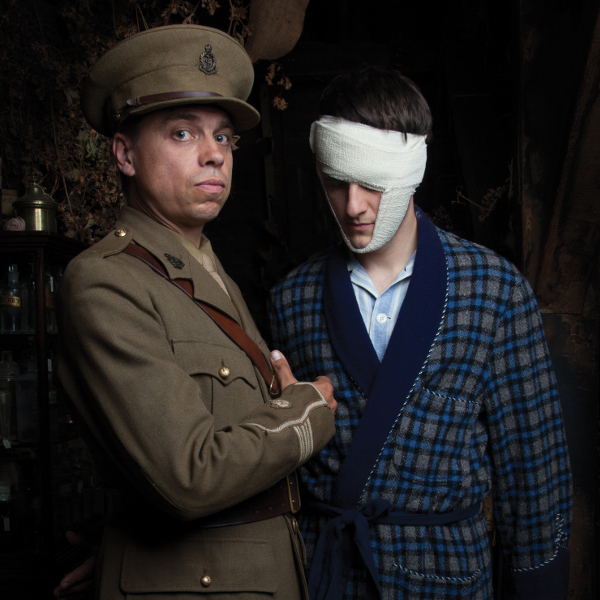Doctor Scroggy's War (Shakespeare's Globe)
Howard Brenton’s play about the Great War is sharp and entertaining

© Bronwen Sharp
Two of the most acclaimed Great War plays so far this year, Peter Gill’s Versailles and Nicholas Wright’s Regeneration have been the work of the Royal Court old soldiers’ brigade; here’s a third, Howard Brenton‘s sharp and entertaining vaudeville about friendship, class and a trail-blazing plastic surgeon who rebuilt the lives, and faces, of damaged veterans on the Western Front.
Doctor Scroggy was the playful Scottish alter ego (bearded and kilted as befits this Scottish independence yes or no voting week) of Harold Gillies whose nose-reconstruction surgery ward at Aldershot was overwhelmed on the first day of the battle of the Somme, moving on to Sidcup, then the Queen’s Hospital, where he was funded by private donations.
The highlight of the second act is a cabaret turn by bandaged victims in drag performing "Baby doll" for Queen Mary. Grim humour is a tool of therapy, and much of Brenton’s play, and John Dove‘s delicious and detailed production, strikes an obvious chord with our own intensified concern for the returning veterans of Afghanistan and Iraq. But it’s also a satire along the lines of Joan Littlewood’s Oh, What a Lovely War! with added human interest.
That interest stems from the friendship of working-class Jack Twigg (Will Featherstone) who is promoted over his initial sponsor, Lord Ralph Dulwich (Joe Jameson), on the intelligence staff of Sir John French (a bullfrog, dyspeptic Paul Rider in the role Olivier played in the Lovely War movie) after a ball at the Ritz where he’s also co-opted as a lover by the Hon Penelope Wedgwood (Catherine Bailey): "Are you a virgin?" she enquires; "No, I’m a chap."
Severely wounded in the battle of Loos in September 1915, Twigg is sent home in the interval to fight another war: Doctor Scroggy’s, though this struggle is no less brutal.
Gillies/Scroggy is played with callous panache by James Garnon, one of the Globe’s regular stars in recent seasons, first seen driving a golf ball into the gods (brilliant trick), later wielding a Cambridge oar with less finesse than his scalpel; sporty Gillies vies with brave heart Scroggy in his own personal campaign of lightening the mood and improving the lot of his disfigured charges.
It’s a clever angle to take in this centenary year, not dissimilar, perhaps to that of viewing the atrocities through the therapeutic psychological lens of Dr Rivers in the Craiglockhart hospital in Regeneration. But Brenton keeps his focus shifting through the eddying developments in the social strata – "clever boy" Twigg’s relationship with his proud, but apprehensive, parents is a potent one – and the looming bulwarks of the Irish civil war and the suffragettes.
Sam Cox chips in with another of his Globe "specials" as an unfairly dim-witted, ramrod-backed Field Marshall Sir Douglas Haig, and Katy Stephens scores, too, as both Twigg’s anxious Mum and a stylish Queen Mary. This is Brenton’s third fine play for the Globe, and he’s well supported by Dove, designer Michael Taylor and the music of William Lyons, blending period songs with clever pastiche, played by a nifty trio on high in khaki uniform.












